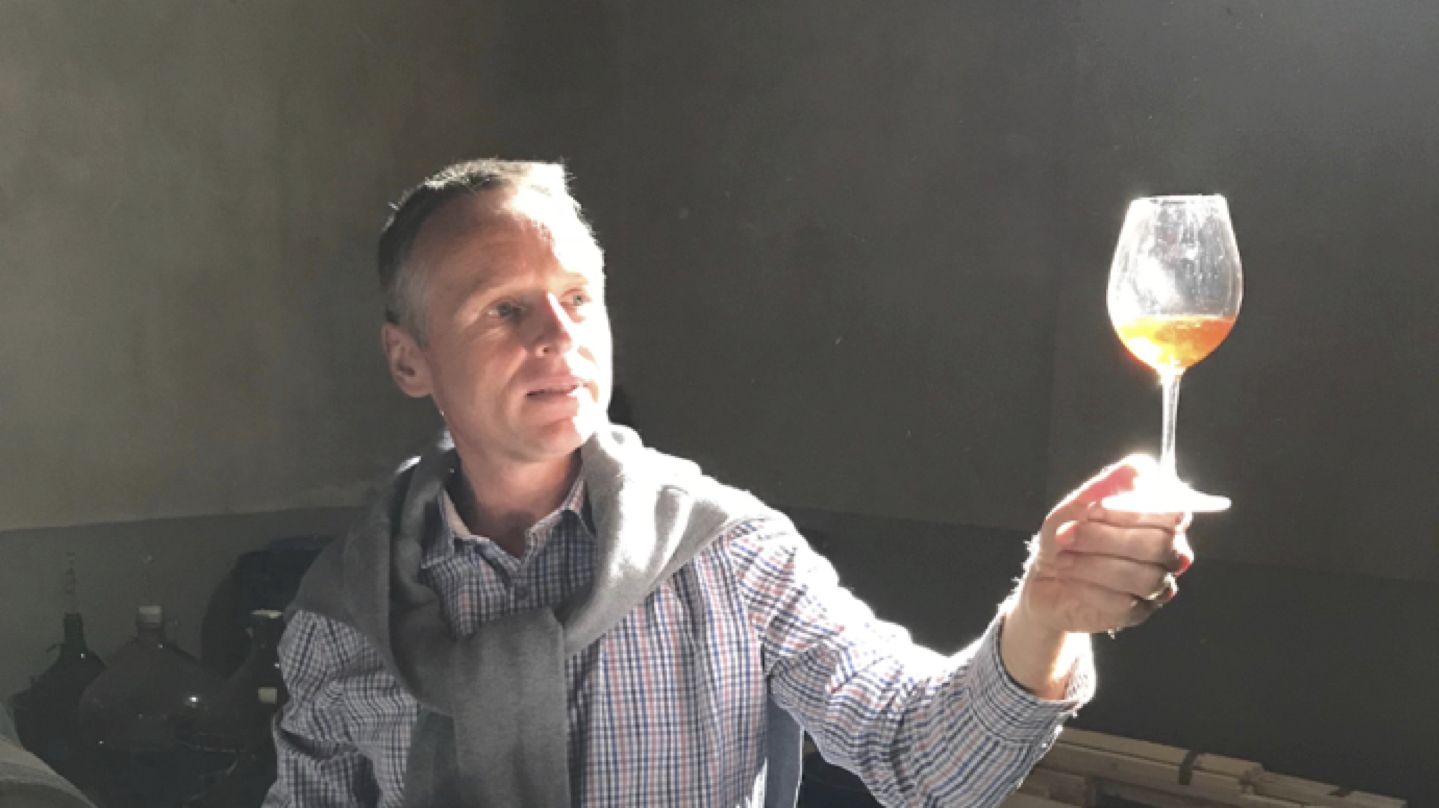Visiting the Tokaj region for the first time at the end of last year I was struck by the repeated references to the recovery from the communist era, says Mike Turner.
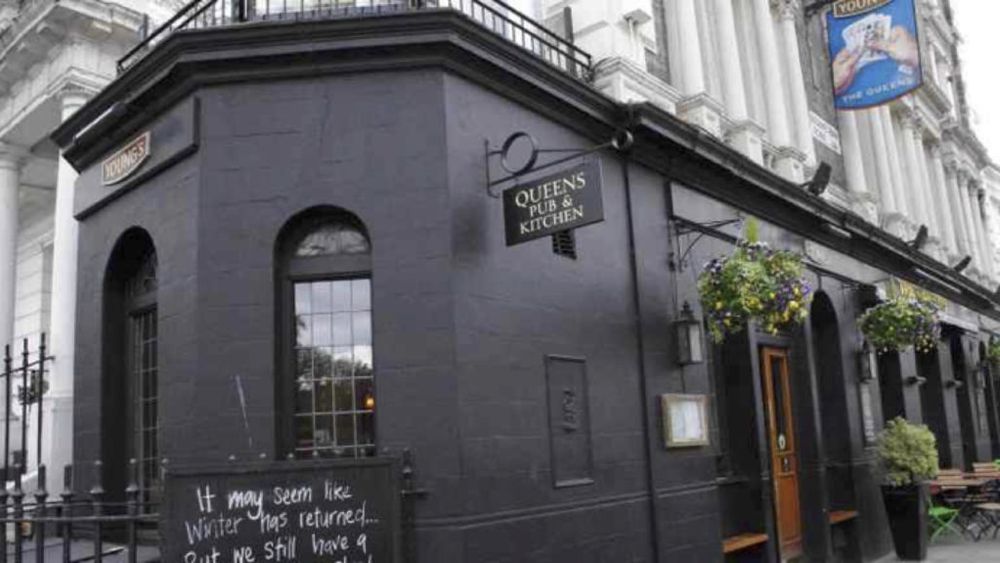
The Queen’s Pub, Primrose Hill, a regular haunt of Marx and Engels Photo: www.beerintheevening.com
There’s a well known saying that ‘If you’re not left wing before the age of 25 then you’ve got no heart; if you’re still left wing after 25 then you’ve got no brain.’ Well unfortunately for me that makes me heartless and brainless. Growing up in the 80s and 90s as a Thatcherite in Merseyside marked me out as being slightly weird from the kick off, but followed up by a slow move to my comfortable position slightly left-of-centre as my one-time-Trotskyite friends marry, have kids, and try to protect what’s theirs continues my slightly out of kilter political fashion.
The culmination of this move left, and where it firmly halted, was going to a local Green Party meeting in Camden. Funnily enough I actually stood as Green Party candidate on the local council elections last year. I’d forgotten I was on the ballot and got a surprise when I received my voting slip. The second surprise came a few days later when I realised I’d received more votes than any Tory candidate. God bless North London!
Anyway, back to this meeting. They were lovely people, very well meaning, and making important points about local Green and social issues, which was why I was there. But I reckon that half of them were only there because the local communist party wasn’t meeting that night. Doesn’t make them bad people, I just don’t agree with them.
It’s my belief that no matter how good an idea it might be in theory, communism just doesn’t work with human nature. Maybe someone needed to tell Engels and Marx that as they discussed the manifesto in The Queen’s Pub in Primrose Hill. Talk about the birth of Champagne Socialism isn’t in it!
The main bother I have, though, is the proof of what it left behind during its 100 year (give or take) stint in the countries of Europe. The wine world can see this front and centre if it wishes to look. My first ever press trip was to Romania a few years ago. A wine industry crippled by communist and dictatorial ideals, that is still recovering socially and economically and relies heavily on the labour of the older generation as the brain drain of the younger generation shows few signs of halting.
European wine regions recovering
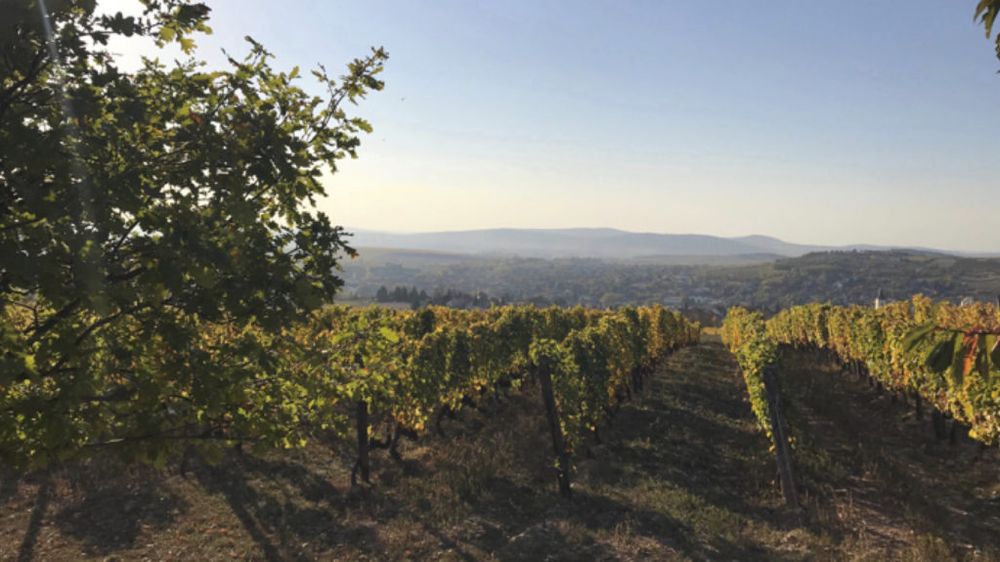
The terroir of Tokaj, rapidly recovering to former glory Photo: PBMMW
The likes of Romania, Bulgaria, the Czech Republic, all these countries that at one time housed impressive wine industries are slowly creeping back to that level and should be lauded for their efforts in the past three decades.
You’ve got to add Hungary to that list, but for some reason in my head it just doesn’t seem to compute. Even before I knew anything about wine I think I’d heard of Tokaji, wines from the Tokaj region and famed for their lush, sweet, noble rot deliciousness. Hey, it might have been on an episode of Red Dwarf, who knows?
Visiting the region for the first time at the end of last year, however, I was struck by the repeated references to the recovery from the communist era. I just hadn’t put two and two together before, of course the producers here must have had similar struggles to elsewhere.
Investment and expertise
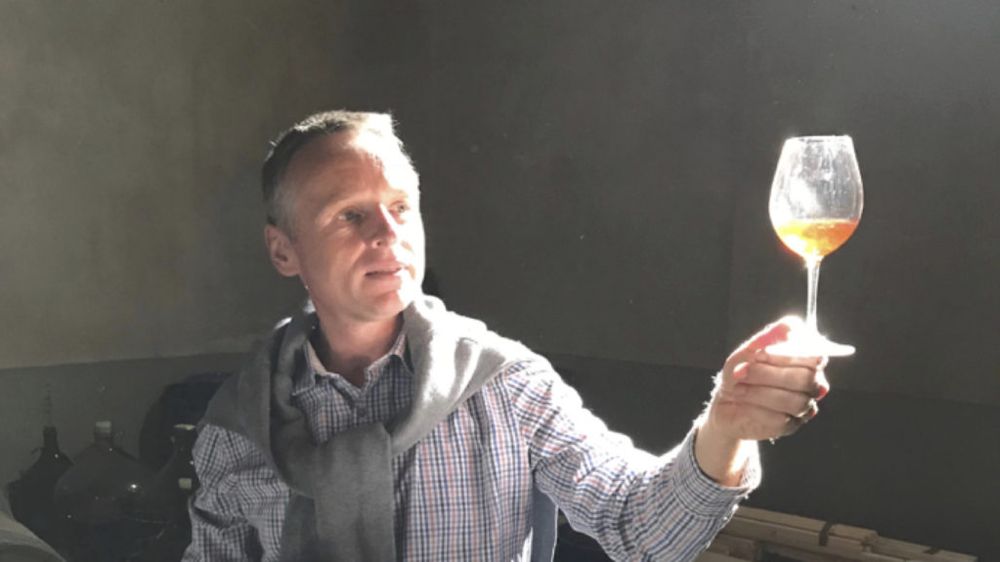
Disznókö General Manager, László Meszáros, should be recognised as one of the stars of Europe’s wine industry Photo: PBMMW
It can be argued that the fame of the region has helped as post-communist investment has flooded in. I was a guest of Disznókö, who were acquired by AXA in 1992. What followed was a state-of-the-art cellar and an incredibly funky looking tractor shed, both of which feature in various books promoting the architecture of the wine world.
Along with AXA’s money came the expertise. A family of wineries based in Château Pichon Baron in Bordeaux, that now spreads across the pond to Napa following last year’s purchase of Outpost Wines. Led as a group since 2000 by Christian Seely, AXA’s family also includes premier cru classé Sauternes house, Suduiraut. Disznókö’s talented general manager, László Meszáros, has plenty of advice to call upon if needed.
Making this stuff is not easy
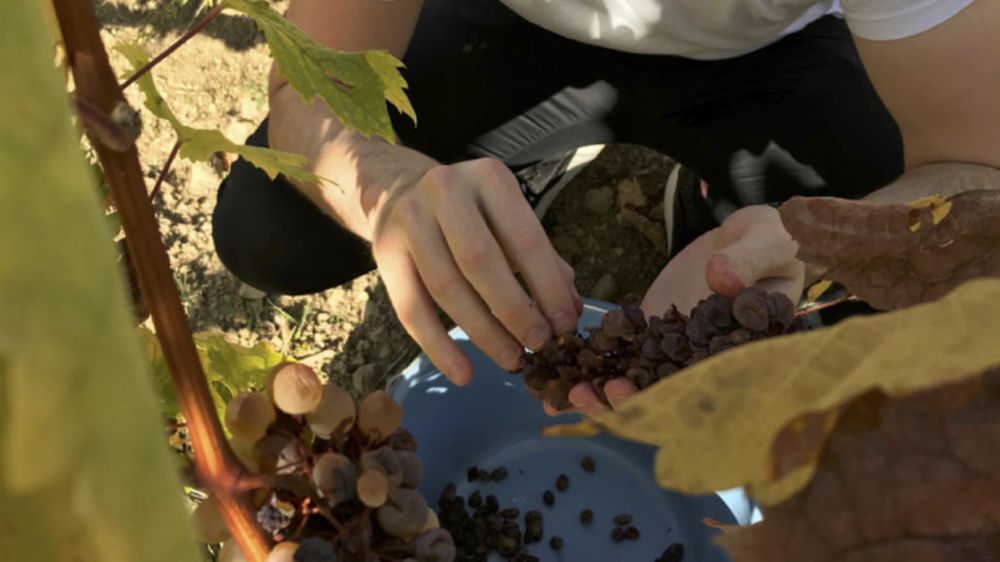
Aidy Smith trying to work out which he should put in the bucket, and which to eat… Photo: PBMMW
Tokaji Aszú is one of the joys of the wine world. It’s made (incredibly briefly) by macerating dried, shrivelled, and often botrytised aszú berries in a late harvest base wine, pressed, racked, and aged in barrels for at least two years. It’s then bottled in the iconic 50cl bottles (that never seem to sit properly in my wine rack). But what happens in the cellar, as technical and careful as you need to be, pales in comparison to the work in the vineyard.
There we were, four bright-eyed and bushy-tailed drinks writers rocking up in the middle of harvest. Would we like to spend some time picking? Sure, let’s do it! Man alive, it was hard!!
Aszú denotes the condition of the berries, translating to “dried” in Hungarian. It’s not the name of the grape, the vineyards are dominated by Furmint and Hárslevelü. Aszú pickers are highly skilled and need to be very selective. Too early and there’s too much liquid in the grape, too late and you’ll struggle to extract any flavour at all. Harvest lasts from August all the way to November with several picking days. Aszú berries are picked as individual grapes, not in clusters. The prime shrinkage is down to around 20%, meaning that 5kg of healthy grapes will convert to just 1kg of aszú berries.
Pickers average a mere 6-10kg of berries per day. That’s not a lot, but I’d wager it was probably 5-9kg more than myself and Adrian Smith would have achieved even if we’d have stayed out there all day. Through a mixture of trying to do work which we were useless at, taking plenty of snaps for columns and social media posts, and being attacked by wasps, I don’t think we’ll be invited back. Rupert Millar was British stoicism personified as he battled his row with gusto. All three, however, were outshone by the genius Kate Hawkings who worked alongside the other workers and asked their advice on how to do it.
Should cost twice as much
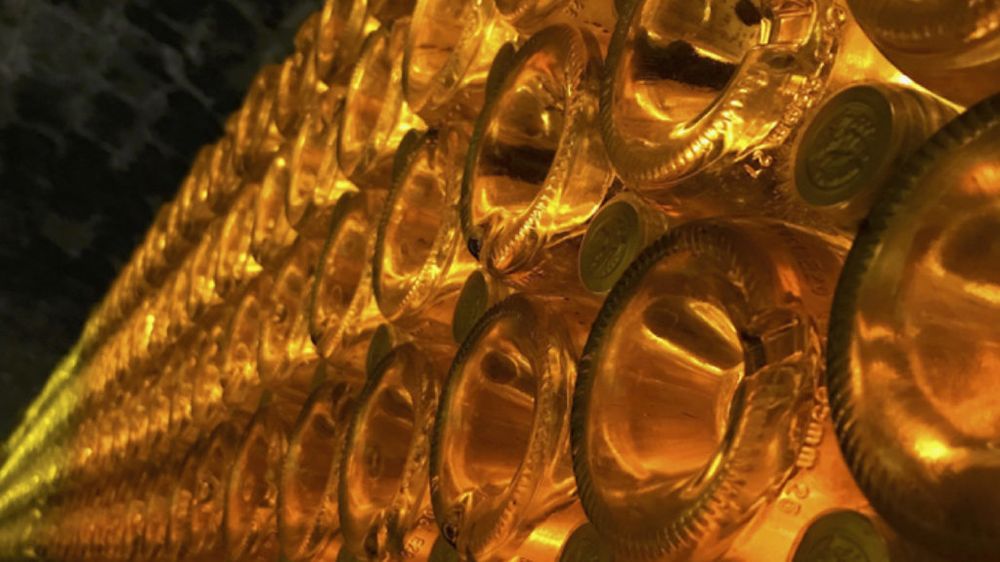
Bottles of Aszú Wine ageing in bottle in Disznókö’s purpose built cellars. Photo: PBMMW
All four of us, returning to the winery for an afternoon tasting, were genuinely impressed/shocked at what a difficult and labour intensive job that is. It got me thinking about the sheer economics of it all. As a mixture of investment and the sheer hard work of the producers and staff continue to move Tokaji back to the glory days, the irony that it’s timed alongside a slowdown in the purchasing of sweet wines is a cruel one. These wines should be costing twice as much, but they don’t.
How can we go about helping these producers towards a fully sustainable financial future? Well that’s easy enough, we keep reminding people about the beauty of these wines, the value of these wines, and where they fit on your table.
If your restaurant has any foie gras, blue cheese, spiced pork belly, duck breast, or a cheeky pumpkin pie, then you need this on your list. Bloomin’ heck, if you’ve got a shop with Jaffa Cakes in it you need to get one of these on the shelves.
Stone fruit, honeyed, marmalade-y, perfumed, lush bodied bottles of loveliness that cost £25 retail, when we live in a world of gimmicks that set you back many times more. Do me a favour! This is the real deal and the effort that goes into them deserves both our respect and our attention.
Cheers
- Disznókö wines are distributed in the UK by Gonzalez Byass
